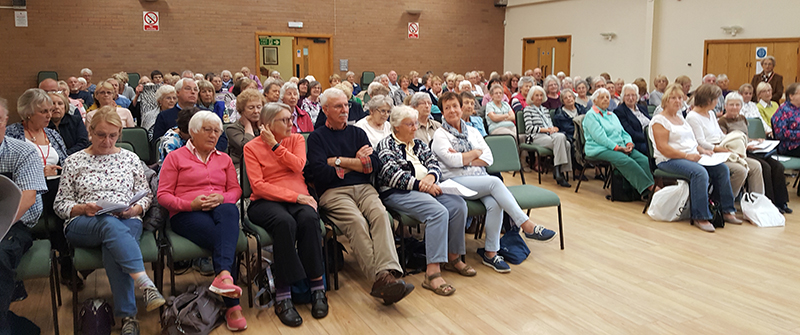Its great to work with diverse audiences, and to share my passion for the natural world and conservation. At a talk given for approx 150 members of U3A (University of the Third Age), I was asked do I “give such talks to inspire and enable young people, as everyone here is ‘old'”. My response is yes, but also everyone is important and has a role to play in behaviour change and sustainable living – and grandparents and retirees are very important role models and people who have influence and impact. Education is for all and life-long.

It’s interesting to reflect that in general, all young children are excited by and curious about nature around them. Even with all the technological gadgets and games, children still find joy and wonder in seeing live animals and playing outdoors. At some point however, and often in those difficult “teenage years”, it seems the relationship with nature changes for many, and they loose the awe and wonder at the world around them – such as how wonderful and amazing a tree is; the diversity of animals and plants etc. Then this interest is often rekindled when they become parents, and lost again as the child grows… and returns as a grandparent.
It may be ‘natural’ to have this up and down relationship with the world, but the risk and challenge is that our impact on life and the world around us, particularly in those periods we ‘loose the connection’ can be extreme as we get sucked into consumerism and stress of modern life. The fact that companies still spend millions on advertising (often for things we don’t need or to make us buy one brand over another), shows that adults have power and can through their choices have impact affecting others. So in conservation education work and our wish to ‘change the world’ it is appropriate and desirable to focus on adults and rekindle that connection to nature and turn it to positive action that makes a difference.
